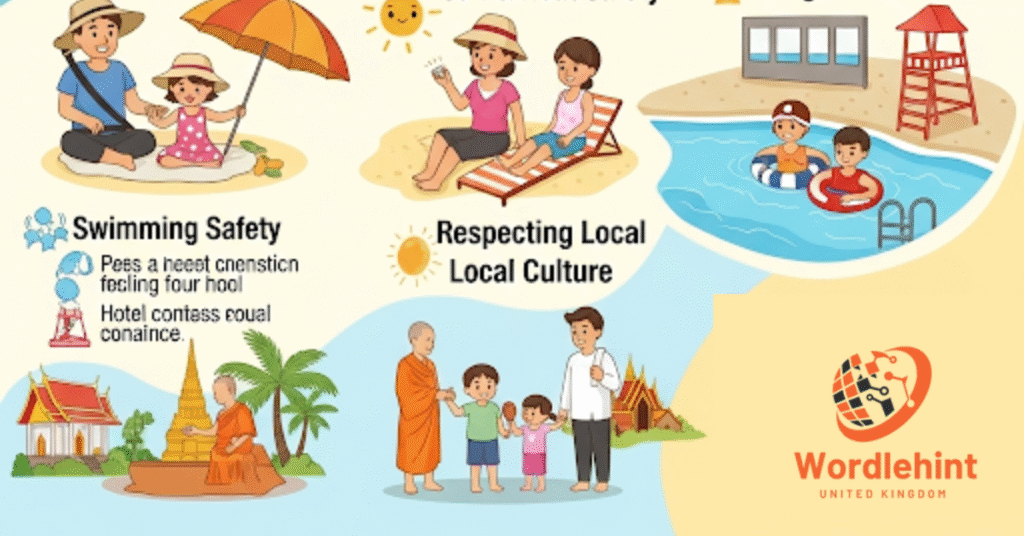Blog
Introduction of Kennedy Funding Ripoff Report

1.1. What Is a “Kennedy Funding Ripoff Report”?
Kennedy Funding “Ripoff Report” is a complaint that is posted on Rip-offReport.com, a platform that offers positive reviews for consumers (such as businesses), but it also shares negative experiences along with positive reviews. Kennedy Funding often has hidden fees, as well as loan delays and unclear terms. Loan recipients use Rip-off Report to vent their frustrations to others, even when their claims are unsubstantiated, which complicates their structure.
1.2. Why Consumers Are Talking About Kennedy Funding
Kennedy Funding is a player in real estate financing. It benefits people’s projects by providing them with fast and flexible loans that are not usually offered by traditional banks in the local area. This place attracts attention from people in both positive and negative ways. Some people highly appreciate its fast and flexible speed, while on the other hand, people find it subject to criticism due to the funding and communication issues it faces. Ripoff experiences are a mixed bag, as they help you communicate with each other on the platform.
Understanding Kennedy Funding
2.1. Company Background and Services
Kennedy Funding, based in New Jersey since 1987, has been lending to individuals and has the ability to make large loans, but the company has now closed more than $4 billion in loans globally, with clients including real estate developers and investors who need funding on time. Kennedy Funding prides itself on its fast approval process and often does both.
2.2. Types of Loans Offered
There are many types of loans available in Canadian funding:
- Hard Money Loans: The interest rate on a short-term loan is higher.
- Bridge Loans: “Bridge your money to fill the gap” is a temporary loan.
- Construction Loans: To borrow for “construction or renovation” due to a lack of property.
- Land Acquisition Loans: To take out an unsecured loan to purchase land.
- Refinancing:To restructure your existing debts.
These loans help meet risky projects and make you more attractive for borrowing for a unique need.
Common Complaints & Ripoff Report Summaries
3.1. Hidden Fees and Unexpected Costs
Among the most common complaints are hidden fees. Lenders have reported offering to pay fees ranging from $3,970 to $79,416, with some reporting that these fees are not refunded even if they decline the loan. On the other hand, the process has been described as adding unexpected costs. These issues have led to distrust among customers.
3.2. Delays in Funding or Closings
Kennedy Funding often advertises closings in both situations. Some borrowers who obtain loans nevertheless report significant delays. These delays can last for weeks or months, causing financial stress and increasing the likelihood of missing out on sensitive real estate deals as time passes. Complaints quickly pile up, increasing frustration with the fulfillment of their promises.
3.3. Disputed Interest Rates and Payment Terms
High interest rates are another sore point. Hard money loans naturally carry higher rates due to risk. However, some borrowers feel Kennedy Funding’s rates are excessive. Others claim loan terms were unclear or changed unexpectedly. This lack of transparency fuels negative reviews.
3.4. Personal Experiences Shared by Borrowers
The experiences of those who obtain loans can vary widely. Some complex deals can help us define funding, for example, the loan helped Florida’s Hotel Cobain recover from the 2020 pandemic. On the other hand, hidden costs and poor communication from the logo share a nightmare. One person described obtaining a loan as a nightmare of hidden costs and delays in their experiences. These stories help shape the reputation of Kennedy Funding.
4. Official Response of Kennedy Funding
4.1. Public Statements & Press Releases
Kennedy Funding has denied any fraud, saying all of its fees and terms are set out in its signed agreements. The company argues that lender complaints are often due to a misunderstanding of hard money lending. It has issued its statements in a manner that promotes transparency and ethics.
4.2. Policy Changes and Customer Service Improvements
Kennedy Funding has made changes to reduce complaints. It has updated its loan agreements to clarify policies for refunds and fees. The company has announced its participation in Ripoff Report’s Corporate Aid How-To Program to improve client relationships. It now focuses on clear communication to ensure staff are well-trained and working.
4.3. How Kennedy Funding Addresses “Ripoff Report” Allegations
Funding also directly addresses many of the complaints it receives. This increases the motivation of borrowers to ask their questions in advance and get good financial advice. The company has taken legal action against false claims, which is specifically aimed at improving and protecting its reputation. However, in addition, the wrap-up report policies can prove difficult to remove false reports.
Also read the https://wordlehint.uk/justin-timberlake-toxicology/
5. Investigations, Findings & Expert Analysis
5.1. Third-Party Reviews and BBB Ratings
Kennedy Funding Rip-Off Report has a Verified™ status that shows its commitment to resolving issues in a positive manner. It has a Better Business Bureau (BBB) rating that varies depending on the type of complaint they have received. A Trustpilot like platform can independently highlight both positive and negative experiences. It is important to do thorough research before engaging with it.
5.2. Regulatory and Judicial Scrutiny
Regulatory agencies (such as the SEC) have thoroughly reviewed the Kennedy Funding practices, but no major legal violations have been found, although complaints about unclear terms have been received and subsequently increased oversight. After legal action, such as the 2019 Virtual Shelton case, most of the cases involving alleged breach of contract have been settled out of court.
5.3. Is Kennedy Funding a Scam? An Expert’s Take
Experts say Kennedy is operating in a high-risk space, in addition to the funding scandal. Hard money loans involve high fees and rates, as some lenders prey on victims by making false statements. Legal experts note that unclear communication can lead to further disputes. Only thorough due diligence can reduce risks.
5.4. Case Studies: Resolved vs. Unresolved Complaints
- Resolved: If the borrower pays a fee of $5,000 but later does not receive the loan or is refused, then after these negotiations, Candy Funding will refund the fee, citing its misunderstanding.
- Unresolved: A developer paid $250,000 to secure a $10 million loan, and a lawsuit is pending, exposing hidden charges.
These cases are able to demonstrate a clear agreement as well as the importance of communication.
The Impact of Ripoff Reports on Kennedy Funding
6.1. Reputation and Brand Trust
The reputation of Canned Funding has been damaged by reports. Customers are deterred from potential reviews by negative reviews, especially in industries that are run with trust. The company’s proactive response helps, but lingering complaints tarnish that image.
6.2. Effects on Borrower Acquisition
Potential lenders who read the complaint reports hesitate after reading it, due to which Candy Funding fails to acquire new clients and its ability decreases day by day. An advantage can be gained over a competitor who receives fewer complaints.
6.3. Share-of-Wallet and Repeat Business
Negative experiences discourage businesses. People who feel misled by taking out a loan are less likely to return. However, positive experiences promote loyalty by making customers aware.
Red Flags & Warning Signs
7.1. Unrealistic Promises and Guarantee Clauses
Kennedy Funding Ripoff Report urges you to be cautious about making claims for guaranteed approvals. Hard money loans are not based on the value of the collateral. If you are overly optimistic about a claim, it could signal trouble.
7.2. Pressure Tactics and High-Pressure Sales
A red flag in developing a high-pressure sales strategy. Reviewing without time helps drive quick decisions. You can hide areas of yourself that are unattractive. Take your time so you can assess.
7.3. Inconsistent Documentation
Be concerned before completing an inconsistent or ambiguous loan document and ensure that all decisions and terms are clearly communicated in advance. Seek clarification for unclear doubts.
Due to Diligence: How to Yourself Protection
8.1. Tips for Conducting Thorough Research
- Check the reviews on TrustPoint BBB and Rip Off Report carefully.
- Verify licenses obtained from state regulators as well as funding sources in a good manne.
- Reduce the research of past reports and its cases or regulatory actions in addition.
- Reconnect with your current or former clients to gain insights.
8.2. Questions to Ask Before You Sign
- What are all the fees along with closing costs and upfront?
- What is the new upcoming interest and payment schedule with the correct rate?
- Will the fee be refunded if the loan is denied?
- How long will it take for funding to be approved?
8.3. Checking Licenses, Registrations, and Ratings
Verify the license obtained from Canadian funding as per the state finance order and check its BBB rating and read the reviews verified within it. Obtain cross-reference information while ensuring it is legal.
Alternative Financing Options
9.1. Traditional Bank Loans vs. Hard Money Lenders
It has strict requirements while offering lower rates than traditional banks. Kennedy Funding Ripoff Reportoffers flexibility with a faster turnaround time at higher rates for hard money lenders, enabling them to choose what they want based on their project’s timeline and risk tolerance.
9.2. Peer-to-Peer and Online Lending Platforms
Platforms like Prosper or Lending Club provide fast and flexible loans to investors and connect people with them. They are able to compete with banks and offer them a faster approval process, but their interest rates can be higher than traditional loans.
9.3. Private Investors and Real Estate Syndicates
Private investors or syndicates obtain funds to take a real estate project to completion. They put their terms in front of people as per their wish and along with that they need a strong network and trust. You should do your research well before getting into it.
Steps for Legal Recourse
10.1. Filing Complaints with State Regulators
If you are facing any kind of problems, you can go to your state’s financial regulator and tell them your complaints. Agencies like the Consumer Financial Protection Bureau (CFPB) are investigating how to support the invitation to obtain a detailed proof.
10.2. Small Claims Court vs. Class-Action Lawsuits
Small claims court is not more cost-effective than small disputes. Class action lawsuits can be used for larger issues. The best course of action is to get good advice from a lawyer to determine.
10.3. Finding a Specialized Lending Attorney
Hire a lawyer who has experience in dealing with creditors. They can review your contracts. Lenders can also have their conversations heard for a fee or represent you in court. Consider the legality and credentials of the lawyer before hiring one.
Tips & Tricks for Future Borrowers
11.1. Negotiating Better Terms
- File lower fee requests in advance to reduce interest rates.
- Compare between multiple lender offers
- Leverage strong collateral to secure good terms
11.2. Avoiding Hidden Fees
- Request a full fee breakdown before you fully sign your signature.
- Well done, read the print carefully.
- Find out about charges that are non-refundable..
11.3. Structuring Short-Term vs. Long-Term Loans
Short-term loans are suitable for quick repayment, but on the other hand, long-term loans are suitable for extended projects. To save yourself from penalties, organize the project timeline in such a way that you keep the loan period in mind and repay it.
Conclusion & Final Words
12.1. Is Kennedy Funding Right for You?
Kennedy Funding Ripoff Report provides a fast and flexible way to finance high-risk projects. It has become an ideal method for sophisticated investors who consider a difficult amount of money to borrow. In addition, it requires caution in the form of high fees and possible leverage. Weigh the risks and benefits with a certain degree of caution.
12.2. Balancing Risks and Rewards
Hard money loans are expensive, but they open up opportunities, which is why banks avoid them.Research them thoroughly, ask questions about them, and seek advice from experts. You should be aware of the risks to help you reap the rewards.
FAQs
Q1: Is Kennedy Funding a legitimate lender?
The answer is absolutely yes, because Kennedy Funding has been operating as a lender since 1987, but it has also stopped lending to Arabs, so we need to consider complaints about fees and transparency very carefully.
Q2: How do I avoid hidden fees and surprises?
Breakdown requests provide a detailed breakdown of fees. Read all terms and conditions carefully before taking out a loan. Also, seek advice from a financial advisor or lawyer before signing.
Q3: Can I negotiate loan terms with Kennedy Funding?
The answer is yes because you can negotiate fees and rates. A strong collateral and competitive offers from other types of lenders can play a major role in strengthening your position.
Q4: Are there any ongoing class-action suits?
No major cases have been confirmed yet, but some individual cases, such as the Shelton incident in 2019, often occur outside of court.
Blog
The Traveler Hired the Wrong Tour Guide – A Costly Mistake

The Importance of a Good Tour Guide
A good tour guide can make or break your travel experience. More than just a person who shows you around, a reliable guide is a storyteller, a cultural ambassador, and a safety net.
Whether you’re exploring a bustling city or a remote destination, the right guide brings hidden gems to light and ensures your experience is smooth, informative, and enjoyable.
Role in cultural insight, safety, and local experience:
- Offers authentic knowledge and cultural context
- Helps you avoid tourist traps and unsafe areas
- Bridges language gaps and handles logistics
- Creates a deeper connection with the destination
Early Warning Signs You’ve Hired the Wrong Guide
Lack of Local Knowledge
If your guide seems unsure about routes, attractions, or local customs, that’s a major red flag. A professional guide should be well-versed in the destination’s history, culture, and geography.
Poor Communication or Language Barriers
Misunderstandings can quickly ruin a trip. If your guide struggles to communicate clearly or doesn’t speak your language well enough, frustration and confusion will follow.
Unprofessional Behavior or Appearance
Being consistently late, dressed inappropriately, or behaving disrespectfully is unacceptable. Tour guides should be reliable, respectful, and professionally presentable.

Deviating from the Promised Itinerary
If your guide keeps making unexplained changes to the schedule or skips key stops without reason, it’s a sign of poor planning or dishonesty.
Negative or Fake Online Reviews
Before hiring, always check reviews. A pattern of negative feedback or obviously fake 5-star reviews are strong indicators to stay away.
Real Travel Story – When Jake Hired the Wrong Guide

Planning a dream trip gone wrong: Jake booked a trip to Morocco through a third-party travel website. His guide claimed to be a local expert, but red flags quickly emerged.
Early red flags and ignored instincts: The guide arrived late, had limited knowledge of historical sites, and spoke broken English despite promises of fluency.
Safety scares and wasted money: Jake was taken to questionable neighborhoods and charged extra for “special access” to places that were actually free to enter.
Emotional impact of a bad guide: Jake returned home disappointed and stressed. What was supposed to be a cultural adventure became a frustrating ordeal.
Financial and Safety Consequences
Hidden Fees and Poor Budgeting
Bad guides often suggest overpriced shops or demand unexpected tips. This disrupts your budget and adds stress.
Unsafe Areas and Missed Experiences
You may be taken to unsafe neighborhoods or miss iconic sites simply because the guide didn’t plan well or wanted to cut corners.
Lost Time at Tourist Traps
Instead of exploring authentic attractions, you might spend hours at commercialized spots where the guide earns a commission.
Trust Issues and Emotional Burnout
Repeated disappointments drain your enthusiasm. Feeling unsafe or cheated leaves a lasting emotional toll.
What to Do If You’ve Hired the Wrong Tour Guide

Speak Up – How to Address Concerns Politely
Voice your concerns calmly but clearly. Example: “I noticed we’re not following the itinerary. Could we please stick to the original plan?”
When and How to Request a Refund or Change
If the service is unacceptable, don’t hesitate to ask for a partial refund or a different guide. Use booking platforms for dispute resolution if necessary.
Safety First – Know When to Leave
If you feel unsafe, remove yourself from the situation. Return to your hotel or contact local authorities if needed.
Document Everything Photos, Notes, Recordings
Keep a record of interactions, places visited, and issues encountered. This is useful for complaints or refund requests.
Turn to Your Hotel or Booking Platform for Help
Hotels often have trusted local contacts. If you booked through an agency, notify them immediately and request support.
How to Research and Vet Tour Guides Properly
Read Reviews What to Look For
Look for consistent positive reviews on trusted platforms like TripAdvisor or Viator. Watch out for repetitive language in fake reviews.
Verify Credentials and Licenses
Ask for a copy of their license or guide ID. Many countries require tour guides to be certified.
Ask Pre-Booking Interview Questions
Questions like “What are your favorite hidden spots here?” or “Can I see a sample itinerary?” help gauge knowledge and attitude.
Use Trusted Platforms and Local Tourism Boards
Book through reputable sites or ask local tourism boards for certified guides.
Red Flags You Should Never Ignore
Low prices, no website or portfolio, vague answers, and pressure to book fast are warning signs.
Smart Tools to Help You Stay in Control While Traveling
Use eSIMs for Europe (Unlimited Max & Lite Plans)
Stay connected without roaming charges. eSIMs offer instant data access to search reviews, maps, and contact support.
Travel Apps for Self-Guided Tours
Apps like Rick Steves Audio Europe, GPSmyCity, and Google Maps offer offline tours and local tips.
Emergency Contact & Translation Apps
Keep apps like Google Translate and local emergency numbers handy for tough situations.
Lessons Learned – How to Turn a Bad Trip into a Positive One
Build Resilience and Flexibility
Bad experiences can teach you to adapt and think on your feet skills every traveler needs.
Learn to Trust Your Instincts
If something feels off, it probably is. Listen to your gut before committing.
Share Your Experience to Help Others
Post honest reviews and share your story to protect future travelers.
Leave Constructive Reviews (with Examples)
Explain what went wrong and how it could be improved. Keep it factual and respectful.
How to Find the Right Tour Guide Next Time
- Use trusted local agencies or referrals
- Ask specific questions before booking
- Compare multiple options
- Book in advance during peak season
- Always have a Plan B
FAQs
What are the signs I’ve hired the wrong tour guide?
Poor knowledge, bad communication, unprofessional behavior, and frequent itinerary changes.
Can I ask for a refund if the guide was bad?
Yes, especially if you booked through a platform or agency. Document your issues.
How do I check if a guide is licensed?
Ask to see their certification or check with local tourism boards.
What’s the safest way to book a guide?
Through verified agencies, apps, or hotel referrals.
Should I avoid cheap tours?
Not always, but if a deal seems too good to be true, research thoroughly.
How can I safely leave a tour I’m unhappy with?
Stay calm, communicate, and remove yourself safely. Alert your hotel or local support.
What tools help in a self-guided tour?
Audio guide apps, offline maps, and travel blogs.
What rights do I have as a traveler?
You can file complaints, request refunds, and contact local tourism authorities.
How can I write a helpful review after a bad guide?
Focus on facts. Mention what went wrong and how it impacted your experience.
Is it okay to travel without a guide?
Yes! Many travelers enjoy self-guided experiences using modern tools and apps.
Conclusion
A great guide adds depth, safety, and joy to your journey. With proper research and preparation, you can ensure your travel memories are positive.
A better trip begins with better prep.
Blog
Best Thailand Family Holiday Guide 2025 for First-Time Travelers

Why Thailand is the Best Family-Friendly Destination
Thailand captivates families with its vibrant mix of culture, adventure, and affordability. From bustling Bangkok to serene beaches, it offers something for every age. Friendly locals and safe, kid-friendly attractions make it welcoming for first-timers.
Explore ancient temples, lush jungles, or relaxing shores. Affordable accommodations and food suit tight budgets, while diverse activities keep everyone entertained.
Whether it’s elephant encounters or waterpark thrills, Thailand family holidays ensures fun for kids and relaxation for parents.The country’s infrastructure supports family travel, with English widely spoken in tourist areas.
Clean public transport and family-oriented tours simplify exploration. Thailand’s warm hospitality and endless discoveries create unforgettable memories.
Planning Your Thailand Trip: A Step-by-Step Guide
Organizing a family trip to Thailand requires simple steps to ensure a smooth adventure. Start early to secure deals and prepare for a hassle-free experience.
Essential Travel Documents
Check that all family passports are valid for six months beyond your travel dates. Depending on your country, Thailand offers visa-free entry or visas on arrival for many nationalities. Research requirements early and carry printed copies of bookings and IDs.
Vaccinations and Health Tips
Consult your doctor 4–6 weeks before departure for vaccinations like Hepatitis A, Typhoid, and routine shots (MMR, DTP). Pack a small first-aid kit with kids’ medications. Use bottled water and hand sanitizers to stay healthy.
What to Pack for Kids and Parents
Pack lightweight clothing, sunscreen, and mosquito repellent for Thailand’s tropical climate. Include kids’ favorite snacks, travel games, and coloring books for long journeys. Don’t forget swimwear and hats for beach days.

Planning Your Thailand Trip
Thailand at a Glance: Must-Know Facts
Thailand Family Holidays offers families a vibrant, accessible destination. Knowing key details helps you navigate with ease and enjoy your trip fully.
- Capital: Bangkok
- Currency: Thai Baht (THB)
- Language: Thai (English common in tourist spots)
- Time Zone: GMT+7
- Emergency Number: 1155 (Tourist Police)
These facts ensure you’re prepared for communication, payments, and emergencies. Thailand’s tourist-friendly environment makes it easy to connect with locals and explore confidently.

Best Time to Visit Thailand With Kids
Choosing the right time for your Thailand family trip maximizes fun and comfort. Each season offers unique experiences tailored to different preferences.
Cool, Dry Season (Nov–Feb)
This season’s mild weather (20–30°C) is perfect for families. Beaches shine, and festivals like Loy Krathong captivate kids. Book early as it’s peak season with higher prices and crowds.
Hot Season (Mar–May)
Temperatures soar (30–40°C), so plan early morning or evening outings. Stay hydrated and visit indoor attractions like museums or malls. Fewer crowds mean better deals on accommodations.
Rainy Season (Jun–Oct)
Short showers don’t dampen fun. Lower costs and quieter attractions make this ideal for budget travelers. Indoor activities like cooking classes or aquariums keep kids engaged.

Family Safety Tips While in Thailand
Safety ensures a worry-free Thailand adventure. Simple precautions keep your family secure while enjoying the country’s charm.
Stick to freshly cooked food and bottled water to avoid tummy troubles. Pack familiar snacks for picky eaters. Comprehensive travel insurance covers unexpected medical or trip issues.
Always supervise kids in crowded markets or tourist spots. Thailand’s locals are warm, but stay vigilant. The Tourist Police (1155) are reliable for emergencies and speak English.
Teach kids basic safety rules, like staying close in busy areas. Carry a hotel card with contact details in case anyone gets lost. These steps ensure a stress-free trip.
How to Travel Thailand With Kids: Flights & Transport

Getting to and around Thailand is straightforward with family-friendly options. Plan transport to keep kids comfortable and stress low.
Booking Flights from Major Countries
Book flights 3–4 months in advance for deals from the US, UK, or Australia. Major airlines like Thai Airways or Emirates offer direct routes to Bangkok. Look for family discounts or extra baggage allowances.
Airport Arrival Tips
Suvarnabhumi Airport (BKK) is modern and family-friendly. Use priority family lanes at immigration and have documents ready. Stick to official taxi counters or pre-booked transfers for safety.
Bangkok Airport Transfers
Choose metered taxis, Grab rides, or airport shuttles for easy transfers. Pre-arrange private vans for larger families. All options are safe and affordable, ensuring a smooth start.
Budgeting & Money Tips for Families
Managing money in Thailand is simple with a bit of planning. Families can stretch their budget while enjoying all the country offer.
Local Currency & Exchange
The Thai Baht (THB) is king. Exchange small amounts at airports, then use local banks or authorized counters for better rates. Carry cash for markets and small vendors.
Using ATMs & Cards
ATMs are plentiful in cities and tourist areas. Use cards with no foreign transaction fees for convenience. Inform your bank of travel plans to avoid card blocks.
Getting Around Thailand with Children
Thailand’s transport options suit families, balancing adventure and comfort. Choose based on your itinerary and kids’ needs.
Trains offer scenic, budget-friendly travel, ideal for older kids who enjoy the journey. Tuk-tuks provide fun, short rides—always negotiate fares first. Bangkok’s BTS Skytrain is fast, clean, and great for city exploration with kids.
Private vans or hired cars are perfect for families, offering flexibility and space. Book through reputable agencies for safety. These options make navigating Thailand’s cities and islands a breeze.
Best Places to Visit in Thailand with Family

Thailand’s diverse destinations cater to kids and parents alike. These spots blend fun, culture, and relaxation for all ages.
Bangkok: Culture Meets Entertainment
Explore the Grand Palace, kid-friendly Sea Life Aquarium, or Lumpini Park. River cruises offer scenic, relaxing sightseeing. Malls like Siam Paragon have play zones and food courts.
Chiang Mai: Nature & Adventure
Visit ethical elephant sanctuaries, try zip-lining, or shop at night markets. Cooking classes engage kids, while temples offer cultural insights. Chiang Mai’s cool vibe suits families.
Phuket: Beach Bliss & Waterparks
Phuket’s Patong Beach and waterparks like Splash Jungle thrill kids. Family resorts offer pools and activities. Teens love water sports, while toddlers enjoy safe shores.
Koh Samui: All-in-One Island
Koh Samui boasts family resorts, nature trails, and calm beaches. Visit waterfall hikes or enjoy beachside dining. It’s easy to navigate and perfect for all ages.
Koh Lanta: Slow Travel & Tranquility
Koh Lanta’s quiet beaches and low-key vibe suit families seeking calm. Snorkeling and small resorts keep everyone happy. It’s less crowded than other islands.
Khao Sok National Park: Jungle Adventures
Stay in unique treehouses and enjoy canoe tours or guided jungle safaris. Khao Sok’s wildlife and scenery captivate kids and parents seeking nature-filled adventures.
Shopping With Kids in Thailand
Shopping in Thailand is a family adventure. Bangkok’s malls, like MBK, offer kid zones, arcades, and global food chains for easy meals. Night markets in Chiang Mai or Phuket sell souvenirs, toys, and local snacks kids love. Bargain politely and stick to marked stalls to avoid scams. These vibrant spots blend fun and culture, keeping everyone entertained.
How to Interact with Locals: Thai Etiquette for Families
Respecting Thai customs strengthens connections. Teach kids the “wai” greeting a slight bow with palms together to show respect. Dress modestly at temples, covering shoulders and knees. Always smile and stay polite, even in busy markets. Avoid overly pushy vendors and stick to reputable stalls for safe purchases. These habits ensure warm interactions.
Language Tips: Basic Thai Phrases to Know
Learning a few Thai phrases delights locals and helps navigation. Say “Sawasdee” for hello, “Khob Khun” for thank you, and “Chai/Mai” for yes/no. In emergencies, use “Chuay Duay!” for help. Practice these with kids for fun and confidence while exploring Thailand.
FAQs
Is Thailand safe for family travel?
Yes, Thailand is safe with precautions. Stick to tourist areas, supervise kids, and use bottled water. Tourist Police (1155) assist foreigners.
What are the best family resorts in Thailand?
Top picks include Centara in Phuket, Anantara in Koh Samui, and Four Seasons in Chiang Mai for kid-friendly amenities.
When is the cheapest time to visit Thailand?
The rainy season (Jun–Oct) offers lower prices on flights and hotels, with fewer crowds.
Are Thai street foods safe for kids?
Freshly cooked street food from busy stalls is generally safe. Avoid raw items and ensure kids eat familiar snacks if needed.
Do I need a visa for Thailand with kids?
Many nationalities get visa-free entry or visas on arrival. Check requirements based on your country.
What’s the best island in Thailand Family holidays?
Koh Samui and Phuket offer family resorts, safe beaches, and activities for all ages.
How do I keep kids entertained on long flights to Thailand?
Pack games, tablets with movies, snacks, and comfort items like blankets or stuffed toys.
Can I drink tap water in Thailand?
No, stick to bottled water to avoid health issues, especially for kids.
How much money do I need for a 7-day family trip to Thailand?
Budget $1,000–$2,000 for a family of four, depending on accommodation and activities.
What are emergency numbers for tourists in Thailand?
Call 1155 for Tourist Police or 1669 for medical emergencies.
Conclusion
Thailand Family Holidays welcomes families with affordable adventures, rich culture, and stunning nature. From Bangkok’s vibrant streets to Koh Samui’s tranquil beaches, it’s a perfect first-time international destination.
With proper planning passports, vaccinations, and smart packing your trip will be seamless. Embrace Thai hospitality, try local foods cautiously, and explore with confidence. This guide equips you for a memorable Thailand family holidays filled with joy and discovery.
Blog
1. Introduction to Bowling Ball Beach, California
-

 Blog4 weeks ago
Blog4 weeks agoKing Charles Sustainable Travel Initiatives A Green Royal Vision
-

 Blog3 months ago
Blog3 months agoLuxury Villas in Italy Le Collectionist Live the Italian Dream
-

 Blog2 months ago
Blog2 months agoLuxury Villas Greece Le Collectionist – Inside Their Exclusive Collection (2025)
-

 Blog3 months ago
Blog3 months agoWho Was Anna Zauner from Simi Valley?
-

 Blog1 month ago
Blog1 month agoLuxury Villas Provence Le Collectionist – Ultimate Guide 2025
-

 Blog2 months ago
Blog2 months agoSelena Green Vargas Biography, Fame & Disappearance
-

 Blog1 month ago
Blog1 month agoLuxury Villas Ibiza Le Collectionist Top Private Retreats for 2025
-

 Blog7 days ago
Blog7 days agoHow Old Is America? A Complete Guide to Its Real Age & History










